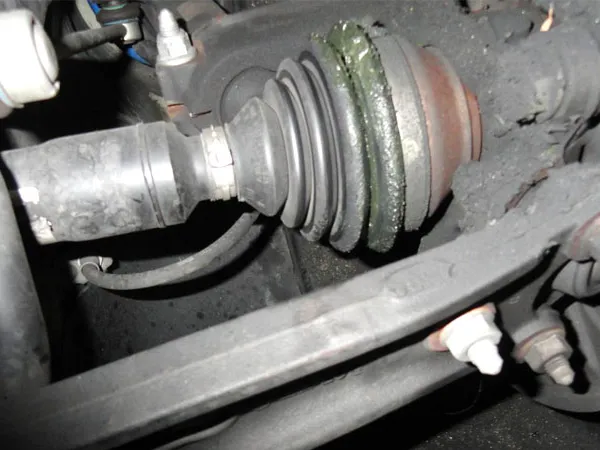Axle shafts are essential components of a vehicle’s drivetrain system. They transfer power from the engine to the wheels, and their primary function is to connect the drive wheels to the transmission or differential. Axle shafts are typically made of high-strength steel, and they are designed to withstand the stresses of driving, including torque and bending forces. However, they are not immune to wear and tear, and over time, they can develop a range of problems that affect their performance and reliability.
Worn Splines
The splines on an axle shaft allow it to engage with the differential or wheel hub. Over time, these splines can become worn, which can cause the axle shaft to slip, resulting in loss of traction and poor performance. Worn splines can also cause noise and vibration, which can be felt through the steering wheel and heard in the cabin. To rectify this issue, the axle shaft may need to be replaced, or the splines may need to be re-cut or repaired.
Bent Axle Shaft
Axle shafts can become bent due to impacts from potholes, curbs, or collisions. A bent axle shaft can cause a range of issues, including vibrations, wobbling, and uneven tire wear. In some cases, the bent shaft can also damage other components of the drivetrain, such as the differential or CV joints. Depending on the severity of the bend, the axle shaft may need to be straightened, or it may need to be replaced entirely.
Leaking Seals
Axle shafts are sealed to prevent lubricant from escaping and contaminants from entering the differential or wheel hub. Over time, the seals can become worn or damaged, which can cause fluid leaks. Leaking seals can result in low levels of lubrication, which can cause premature wear and damage to the differential or wheel bearings. To fix this problem, the seals must be replaced, and the surrounding area must be cleaned to prevent contamination.
Broken Axle Splines
In extreme cases, the splines on an axle shaft can break due to excessive torque or stress. This can cause the vehicle to lose power and acceleration, and the wheels may not receive enough torque to move the vehicle. Additionally, broken splines can cause loud banging noises and severe vibrations. If the splines are broken, the axle shaft must be replaced entirely.
Corrosion
Axle shafts are exposed to harsh conditions, including heat, moisture, and road salt. Over time, this exposure can cause the shaft to corrode, which can weaken its structural integrity. Corrosion can also cause the splines to seize, making it difficult to remove or replace the shaft. To prevent corrosion, axle shafts should be cleaned and inspected regularly, and rust inhibitors can be applied to protect the metal from further damage.
CV Joint Failure
Axle shafts with CV (constant velocity) joints are common on front-wheel-drive vehicles. These joints allow the wheels to turn and move up and down while maintaining a constant speed. However, over time, the CV joints can wear out, resulting in clicking or popping noises when turning or accelerating. If left unchecked, a failed CV joint can cause complete failure of the axle shaft, which can result in costly repairs. To prevent CV joint failure, regular maintenance and inspections are required.
Conclusion
Axle shafts are critical components of a vehicle’s drivetrain system, and they can develop a range of issues over time. Worn splines, bent shafts, leaking seals, broken splines, corrosion, and CV joint failure are all common problems with axle shafts. Regular maintenance and inspections can help identify these issues early and prevent costly repairs. If you suspect an issue with your axle shaft, have it inspected by a qualified mechanic.

